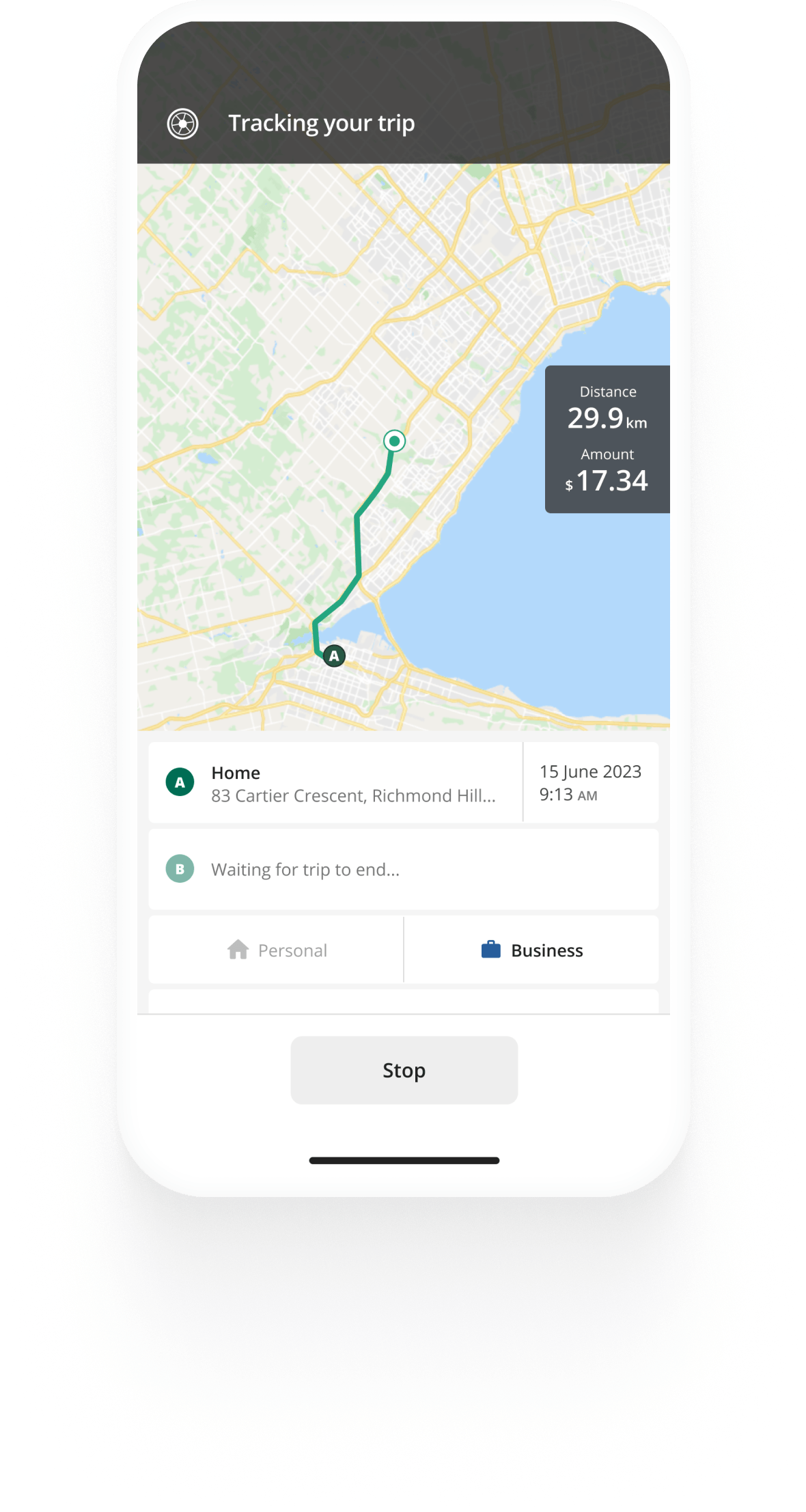Track mileage automatically
Get startedBusiness Expenses
In this article
Business expenses are any expenses you incur to keep your business or self-employed practice operational and to earn income. In Canada, there are two main types of business expenses - current and capital.
Generally, current expenses can be deducted in full (so long as they are eligible) in the year the expenses are incurred. Capital business expenses, on the other hand, can be claimed over a few years.
The CRA strictly defines what business costs are deductible, and in most categories, you may have current and capital expenses.
Business expenses you can claim
The CRA allows for many different business expenses to be deducted. The most common deductible expenses can be both fixed and variable expenses. Some of these include:
- Rent, utilities, accounting, administration and legal fees
- Interest and bank fees
- Property taxes
- Wages, bonuses and commissions
- Eligible employee expenses you have reimbursed
- Maintenance and repairs
- Vehicle expenses
- Business travel
- Office supplies
- Advertising
- Allowable meal and entertainment expenses
- Home as a business place if it is the principal place of your business
Capital expenses include other business costs that are “bigger” and provide a lasting benefit to your business or practice - they do not run out or need to be replaced or replenished quickly. These can include purchasing capital property (note you can only deduct GST/HST minus the amount of any claimed input tax credit), vehicles, office furniture, maintenance and repair on business assets of a lasting nature or improvement, replacing assets and more.
We recommend consulting with a tax professional to find out more about capital business expenses.


Track business driving with ease
Trusted by millions of drivers
Automate your logbook Automate your logbook

Automatic mileage tracking and CRA-compliant reporting.
Get started for free Get started for freeKeep track of your business expenses
You are obliged to substantiate your business expenses claim you want to deduct at tax time. The CRA states that you must keep receipts of all eligible business expenses to prove them. The receipts of your business expenses must clearly show the following information:
- The date of the purchase/transaction
- The name of address of the seller and buyer
- A full description of the purchased goods or services
- The business number of the vendor, if they are GST/HST registrant
In the event that the seller did not provide you with a receipt or invoice, the CRA allows that you write down the name and address of the seller, how much you have paid for the purchased goods or services, the date and details of the transaction in your business’ expense journal.
In order to keep track of your vehicle mileage to calculate car expenses, we recommend using an automatic mileage tracker, or if you prefer a manual way - a CRA mileage log template. See the mileage log requirements in Canada.
FAQ

Tired of logging mileage by hand?
Effortless. CRA-compliant. Liberating.
Related posts
CRA Mileage Rate 2024
Latest update: February 20, 2024 - 2 min read
The CRA announces 2024 rates for vehicle allowance: From January 1st, 2024, per kilometre rates will increase 2 cents over 2023.
Travel Expenses for Employees
Latest update: January 6, 2026 - 2 min read
Need to know how to receive travelling expenses reimbursement from your employer? Learn about CRA travel expenses and if they are taxable as part of your income.
Car Allowances for Employees in Canada
Latest update: January 6, 2026 - 2 min read
Learn everything about car allowances for employees in Canada in 2025 - see if your car allowance will be taxed and what you can use it for.


.svg)